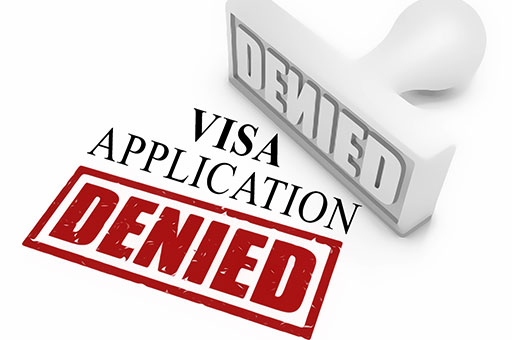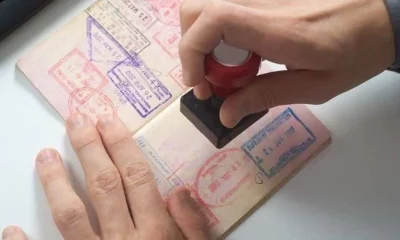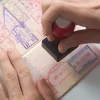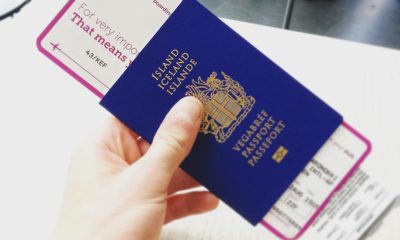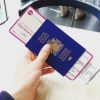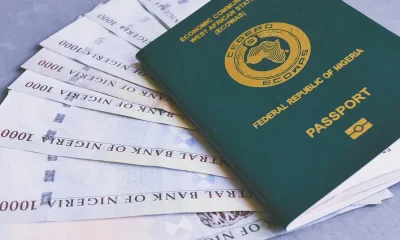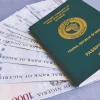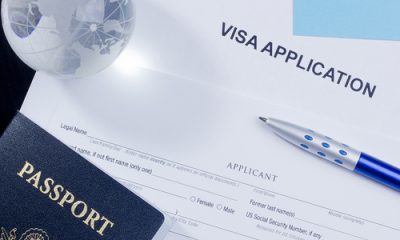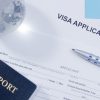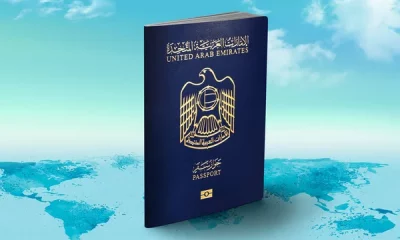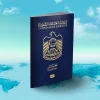TravelS
Reasons Why Your US Visa Application Might Be Denied

Reasons Why Your US Visa Application Might Be Denied
A visa is a short-term permit that grants a passport bearer the right to travel to a nation other than the one they are originally from. The visa will often be stamped directly into the passport; sometimes, however, it may be a separate document. Indian people may apply for one of three different types of passports from the Indian government.
The seven most frequent reasons for a visa application denial are as follows:
1- Not being ready
Make sure you have done all the required study and preparation before beginning the visa application process. The internet is a great resource for learning about the visa application and interview procedure. Another trustworthy source of information that may be utilized to assist you at every level of the procedure is a website operated by the government.
2- submitting an inaccurate visa application
Depending on the kind of visa you are seeking for, the qualifying criteria and other restrictions could differ. Make sure you are applying for the right visa by double-checking your application. Make sure you can complete the duties and meet the requirements in order to qualify for that particular visa. Just because you fulfill the criteria for one visa doesn’t mean you automatically qualify for another; this might leave you disappointed. It’s likely that each visa has a separate set of criteria.
If your status does not fulfill the requirements for the kind of visa you are seeking for, be confident that the embassy will reject your application. The United States’ immigration law separates visas into a number of types, each of which has a distinct purpose. For instance, the United States of America provides the Electronic System for Travel Authorization, or ESTA, for tourists and business visitors alike. Participants in this kind of visa waiver program (ESTA USA) are given permission to travel to the US anytime they choose for up to 90 days total on each visit during a two-year validity term. Don’t you think that sounds exciting? It does, really. However, it’s a pity that this is not accessible everywhere.
Only citizens of a select few nations who are lawfully residing there may submit an ESTA application. For instance, if you are from Nigeria and your country is not listed as being qualified for the Visa Waiver Program, you cannot enter the United States through an ESTA application. Imagine for a minute that a person from Nigeria hears about ESTA and then applies for it. Such an individual’s ESTA application will probably be denied.
3- Giving information that is unreliable or incomplete
By correctly completing the relevant papers and coming prepared with all necessary requirements, needed documents, and forms of verification, the procedure may be speed up. The submission of unverifiable or erroneous information may lead to the refusal of a visa application as well as wasteful and lengthy processing. Do not allow a simple error to delay the processing of your visa application.
Another issue that is quite similar to the issue of falsified information is inaccurate data. Usually, this happens as a consequence of the applicant mistyping a component of their application.
Providing a birth date that isn’t accurate is a common example of this issue. As an example, an applicant could include a date on the visa application form that differs from the date on their passport. If this happens, the applicant can get a flat-out rejection of their request. They could also be requested to clarify the misunderstanding, in which case their visa application will be delayed.
4- Submission of an incomplete document
Various visa classes have different criteria, as we’ve already said. Unfortunately, a significant portion of applicants still regard the different visas as though they were the same. Put a stop to it, please. That would be the same as shooting one’s own legs. The needed documentation for one kind of visa may not be admissible for another form of visa, so be aware of this.
The most effective approach to acquire the data you need for the visa application you’re submitting is to check official sources, including the website of the Bureau of Consular Affairs. For further information, you may also look at a few reputable blogs that are accessible online.
These verifications must be made in order to prevent sending in papers that are deficient in critical information. For instance, a foreign college student seeking a student visa could think that their sole need is to provide the bank statements of their sponsors. They are not aware that the American embassy would also go through their personal bank statement in the application.
You will not learn these facts unless you make the effort to complete your investigation.
5- Using too much language
When I was growing up, my grandma would often recite an ancient saying. “Don’t put questions in people’s thoughts that aren’t in their minds,” was one of her most remembered pieces of advise. It just implies that one shouldn’t force another individual to reflect on issues that they were probably not doing so before. It’s conceivable that you’re doing this by divulging too much information during the immigration interview.
Please limit the number of times you respond. Imagine that an embassy representative asks you what you do for a job. The topic of discussion then switches to include both your main sources of income and any side income streams. He could have been inspired by your answer to look into your earlier tax returns to see whether you included income from side jobs and other sources in your tax payments.


